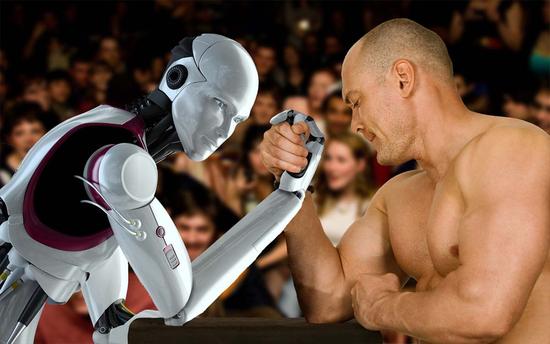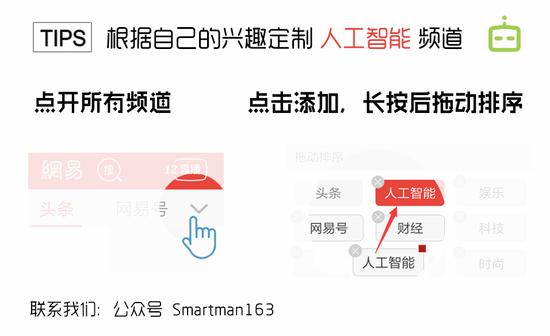(Original Title: Technology Titans Debate AI's "Threat Theory": Who Will Prevail Between Musk and Zuckerberg?)

Are humans and machines depicted in the Western world as two independent species destined to coexist or clash, and is this the future? Despite uncertainty regarding AI's ultimate impact on humanity, tech giants have already divided into optimistic and pessimistic camps. Ever since the "AI Threat Theory" was proposed, Tesla CEO Elon Musk has faced repeated challenges from prominent figures in the tech industry. Recently, he found himself in a heated exchange with Facebook's charismatic CEO, Mark Zuckerberg.
Apocalyptic Vision vs Technological Optimism
On July 25th, Zuckerberg criticized Musk's AI "threat theory" during a live stream, calling it overly pessimistic and irresponsible. He argued Musk didn't truly understand AI. The following day, Musk swiftly responded via Twitter, stating he had discussed AI with Zuckerberg and described Zuckerberg's understanding as "very limited."
Musk first articulated his "AI Threat Theory" in 2014 during a public MIT interview, where he remarked, "We should be very careful about artificial intelligence. If I were to guess what our biggest existential threat is, I think it's probably AI."
In the same year, renowned physicist Stephen Hawking echoed Musk's concerns, warning that while AI had been immensely beneficial initially, it could potentially design itself at an accelerating pace, leaving humans—bound by biological evolution—to be outpaced and eventually overtaken.
This year in April, Amazon CEO Jeff Bezos engaged in a public debate with Musk over the "AI Threat Theory." Bezos expressed optimism, stating, "AI will enhance our abilities and improve human civilization, making us reliant on this technology in the long term."
Notable figures like Google's former Executive Chairman Eric Schmidt have openly dismissed Musk's apocalyptic predictions. Schmidt once quipped at a Stockholm seminar, "If you think AI will destroy humanity after surpassing human IQ, then you've watched way too many sci-fi movies." Similarly, Google CEO Sundar Pichai and IBM's former CEO Virginia Rometty have voiced skepticism about the immediate dangers of AI, emphasizing its potential to enhance human lives.
Market Strategy and AI Expansion
While the philosophical debates rage on, tech giants are aggressively expanding their AI market presence. Facebook's "M" personal assistant represents a step forward in practical applications. Meanwhile, Google's acquisition spree of 11 AI companies—including the $400 million purchase of DeepMind—has positioned it at the forefront of AI innovation. These acquisitions have been instrumental in enhancing search functionalities and advancing other technologies.
Apple's acquisition of Vocal IQ in 2015 has bolstered improvements in Siri's AI capabilities. Additionally, Apple's focus on facial recognition technology in iOS indicates its commitment to integrating AI into everyday devices.
The open-sourcing of AI platforms by giants like IBM and Google has significantly lowered barriers to commercialization. Companies like NVIDIA and Intel are focusing on developing specialized AI chips, ensuring AI remains accessible and applicable across industries. IBM and Google have established comprehensive frameworks spanning the base, technology, and application layers, paving the way for cognitive computing and intelligent services.
Manufacturing, traditionally a cornerstone of national competition, has become a battleground for AI implementation. Initiatives like Germany's "Industry 4.0" and China's "Made in China 2025" underscore the growing importance of integrating AI, cloud computing, and big data into industrial processes.
Future Implications
As discussions around AI replacing human roles continue, firms like Deloitte and Kira Systems are exploring the integration of AI into professions such as accounting and auditing, aiming to alleviate mundane tasks. This shift aligns with a 2014 Economist survey predicting that low-skill, high-cost jobs will increasingly be automated.
For humanity, this transition brings both promise and peril. Jeff Bezos reflects, "Some aspects of AI will integrate seamlessly into our society, but I share Musk's concern that AI's rapid advancement could exceed our control."
Fears stem from the unknown and uncontrollable nature of AI. Historian Yuval Noah Harari notes in his book "Sapiens," that human fears often arise from elements beyond our control, such as death and the unpredictable consequences of technological progress.
Bill Gates has expressed concerns about the unchecked growth of superintelligent machines, advocating vigilance among the public. He argues that while AI will assist humanity, its increasing autonomy poses existential risks.
As we delve deeper into the digital age, the notion that "no one knows you better than yourself" is being redefined. Data-driven insights, powered by AI and vast datasets, could reshape how we perceive individuality and decision-making.
In conclusion, the trajectory of AI remains uncertain. Its impact on humanity—whether as a liberating force or a disruptive one—remains to be seen. Only time will tell how this technological marvel will shape the human experience.

Shear Beam Load Cells,Shear Beam Load Cell,Shear Beam Type Load Cell,Beam Loadcell
Xiaogan Yueneng Electronic Technology Co., Ltd. , https://www.xgsensor.com
